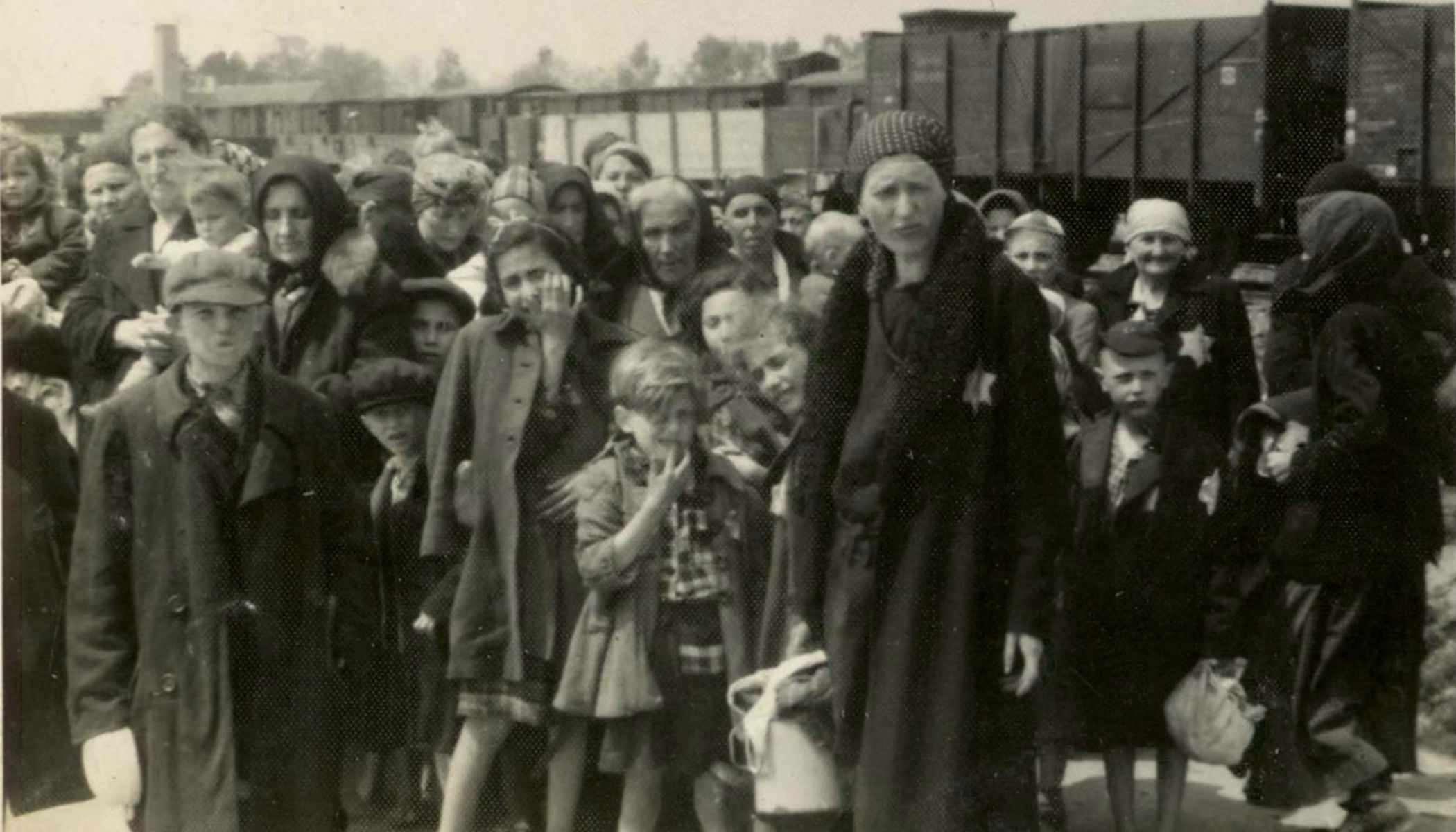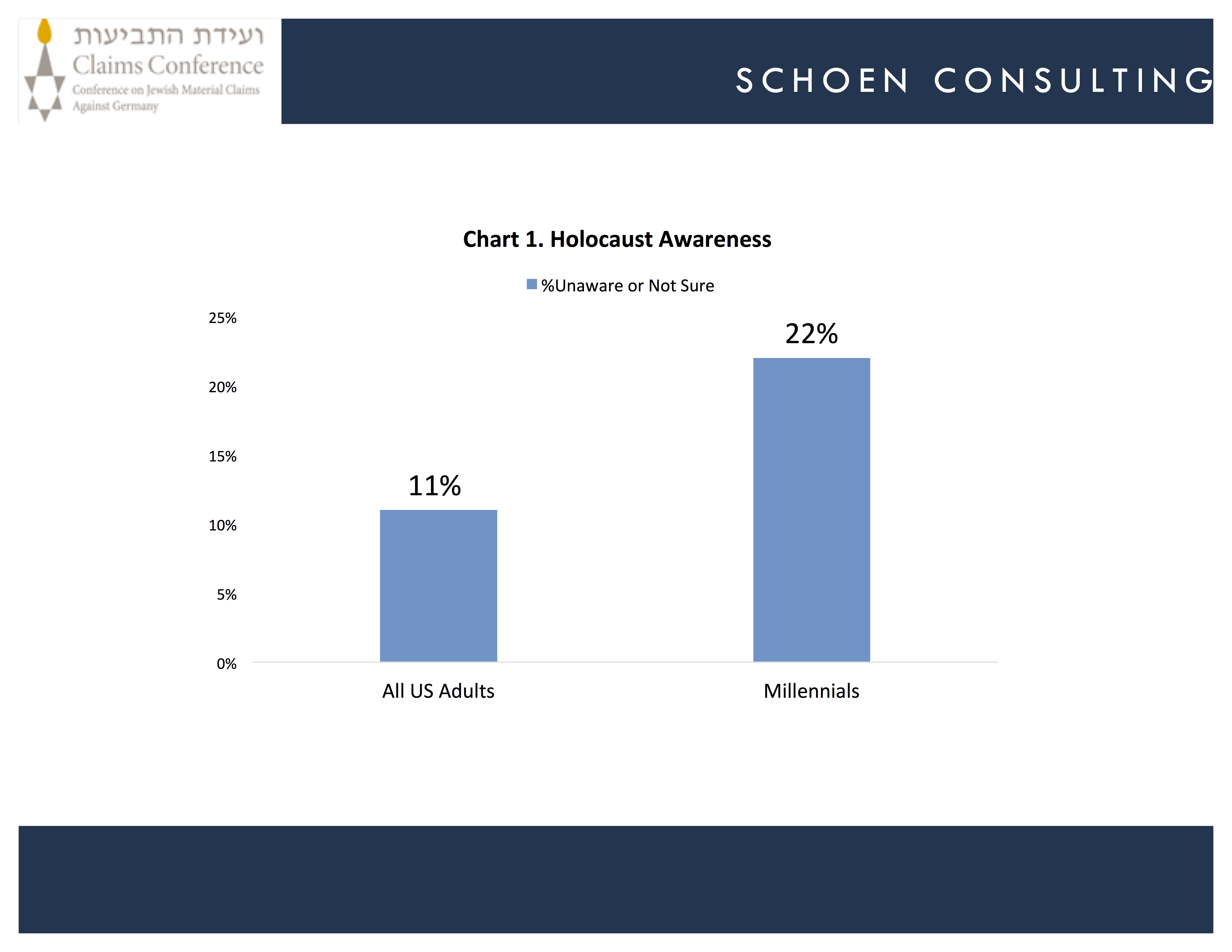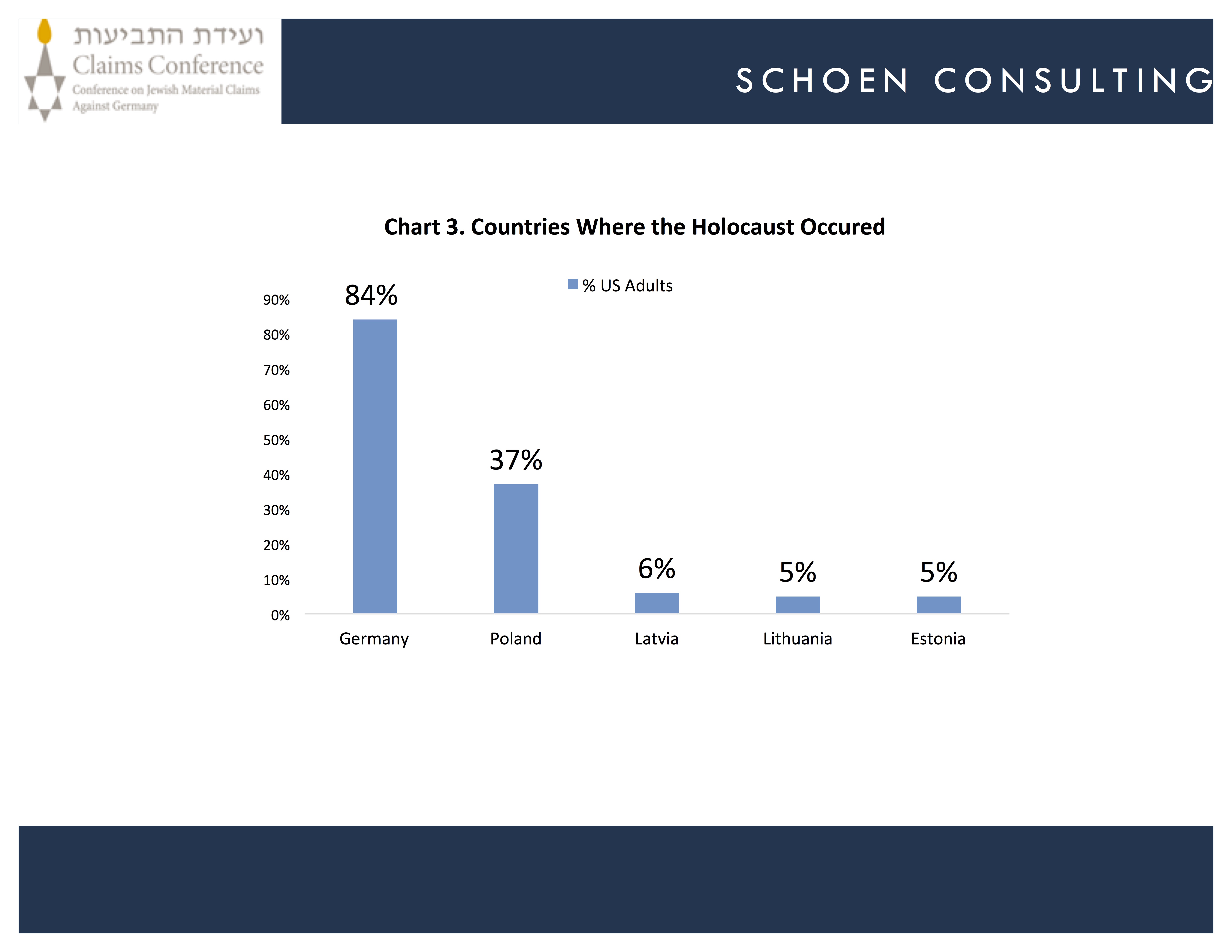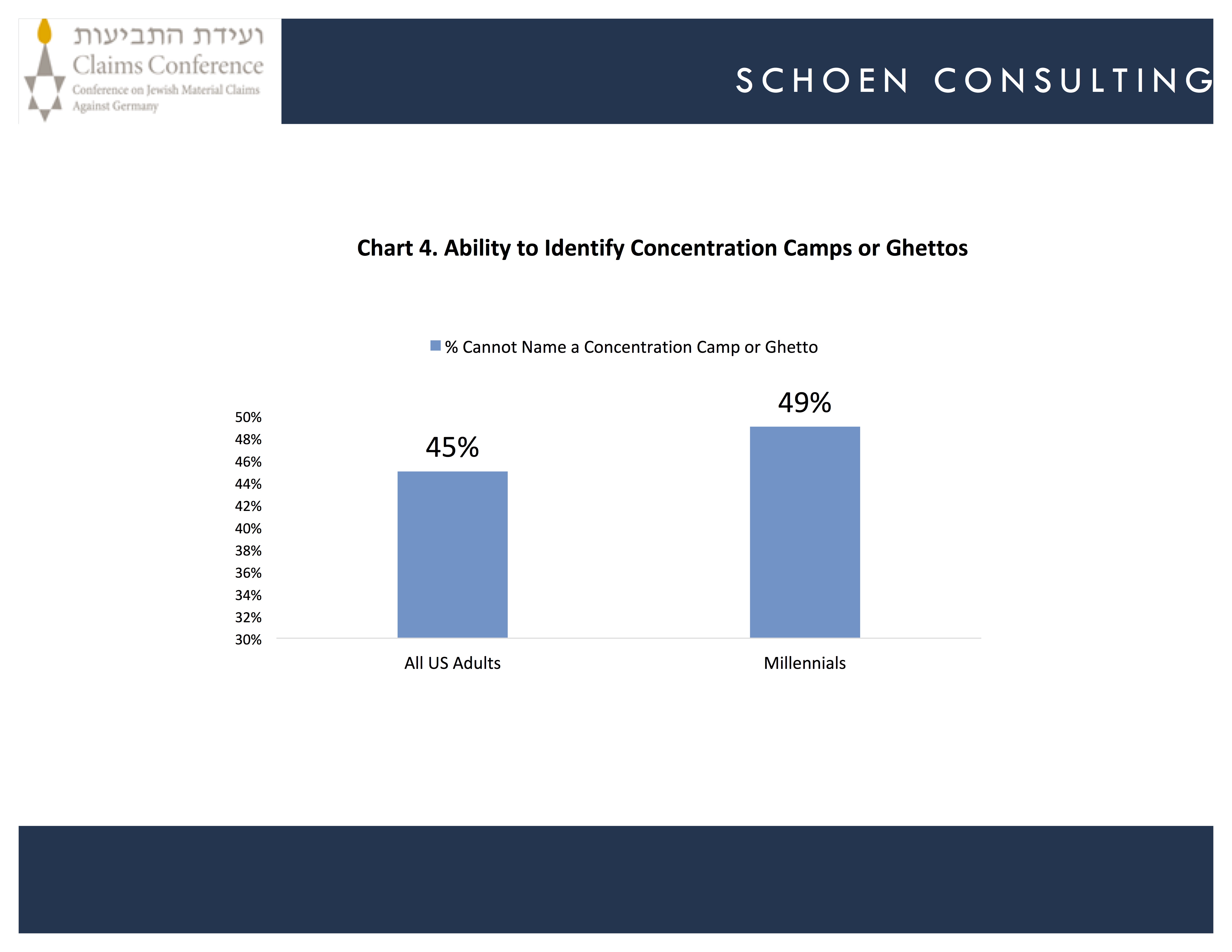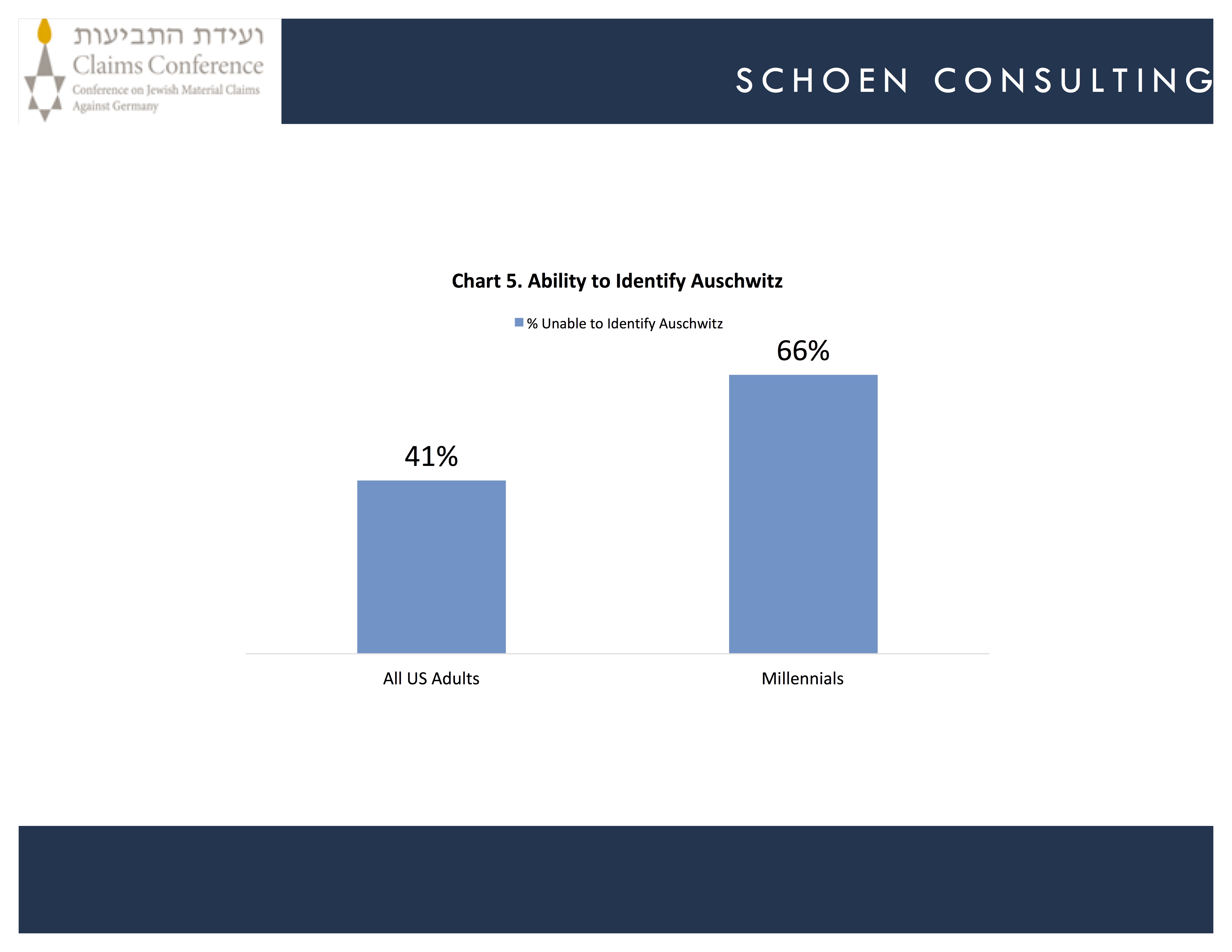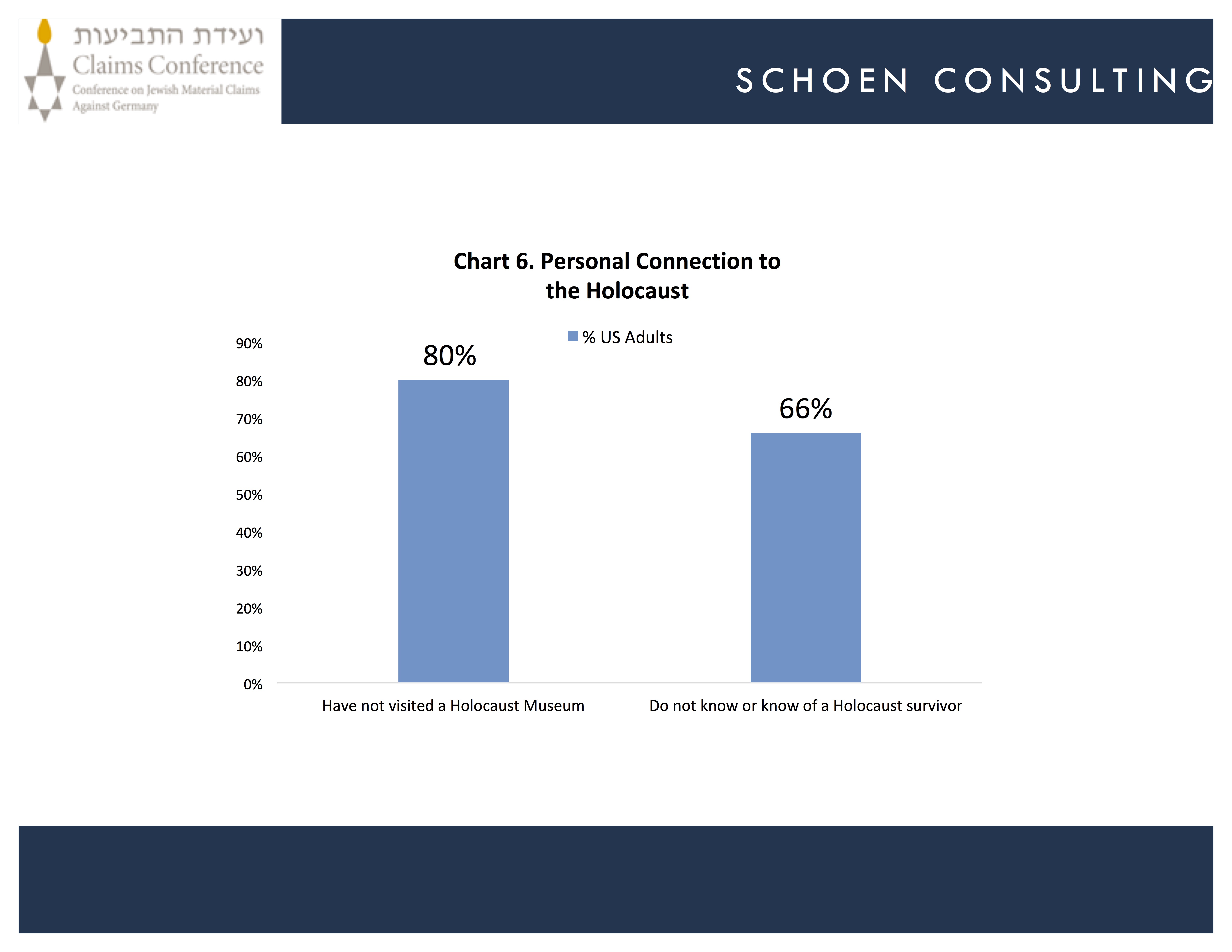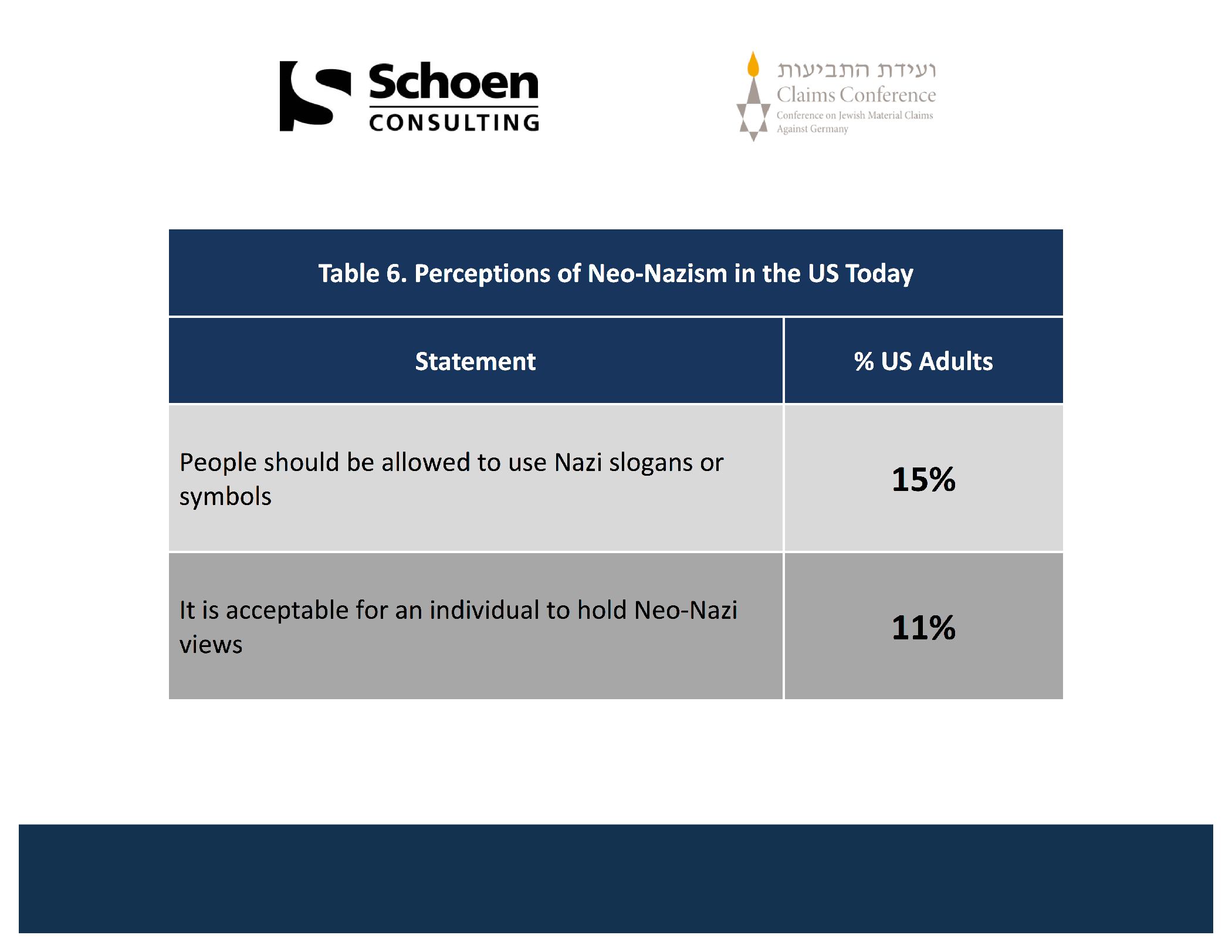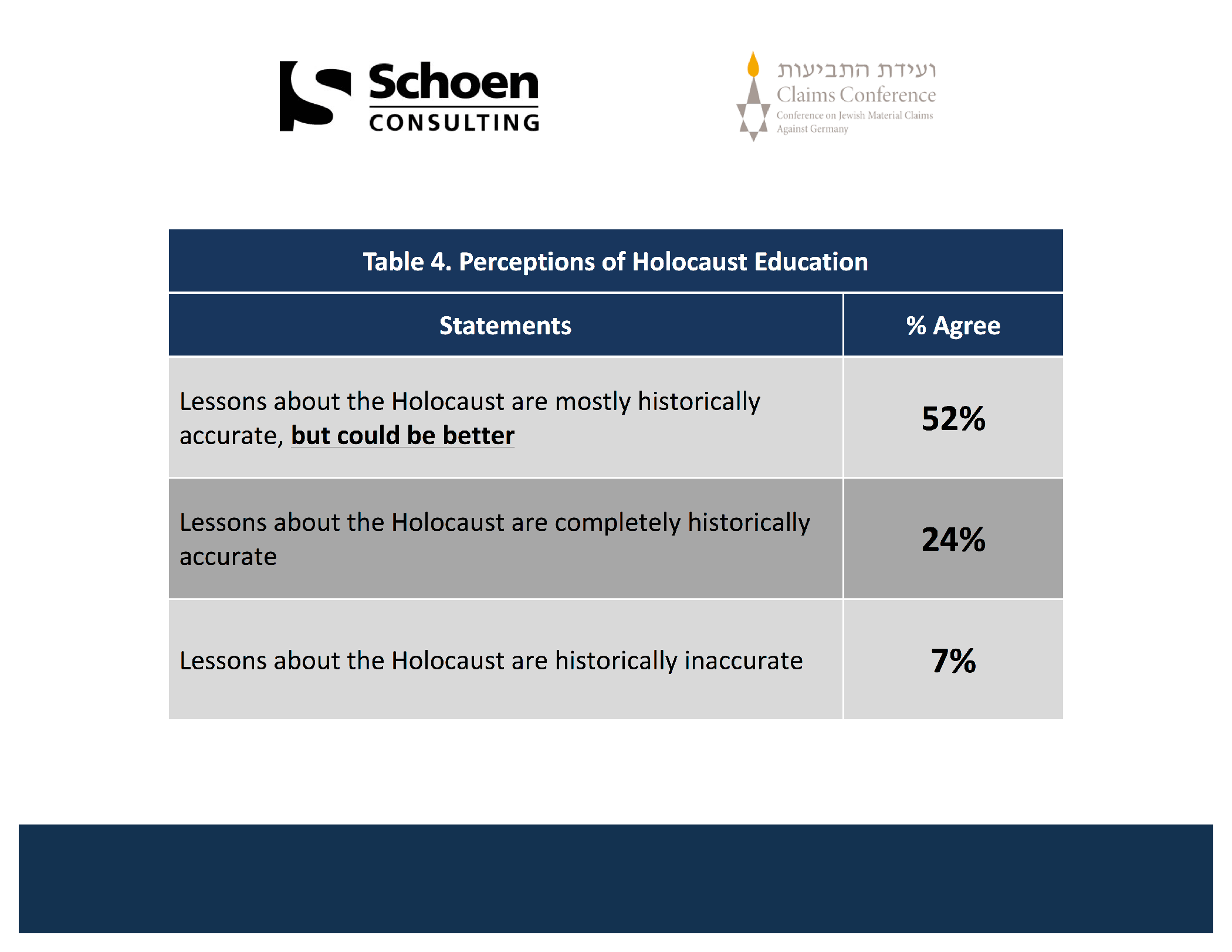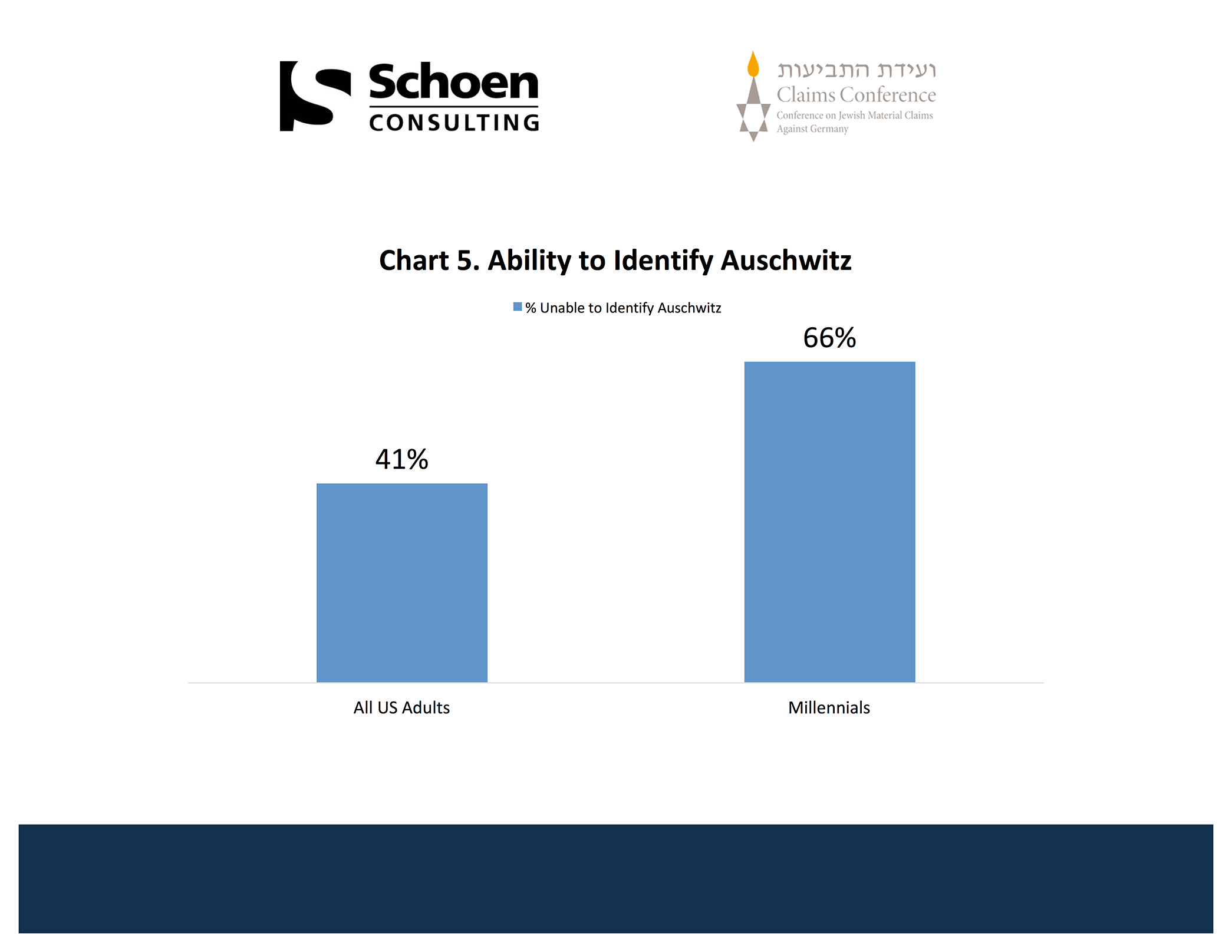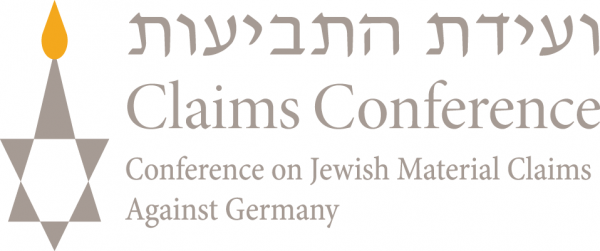Holocaust Knowledge & Awareness Study
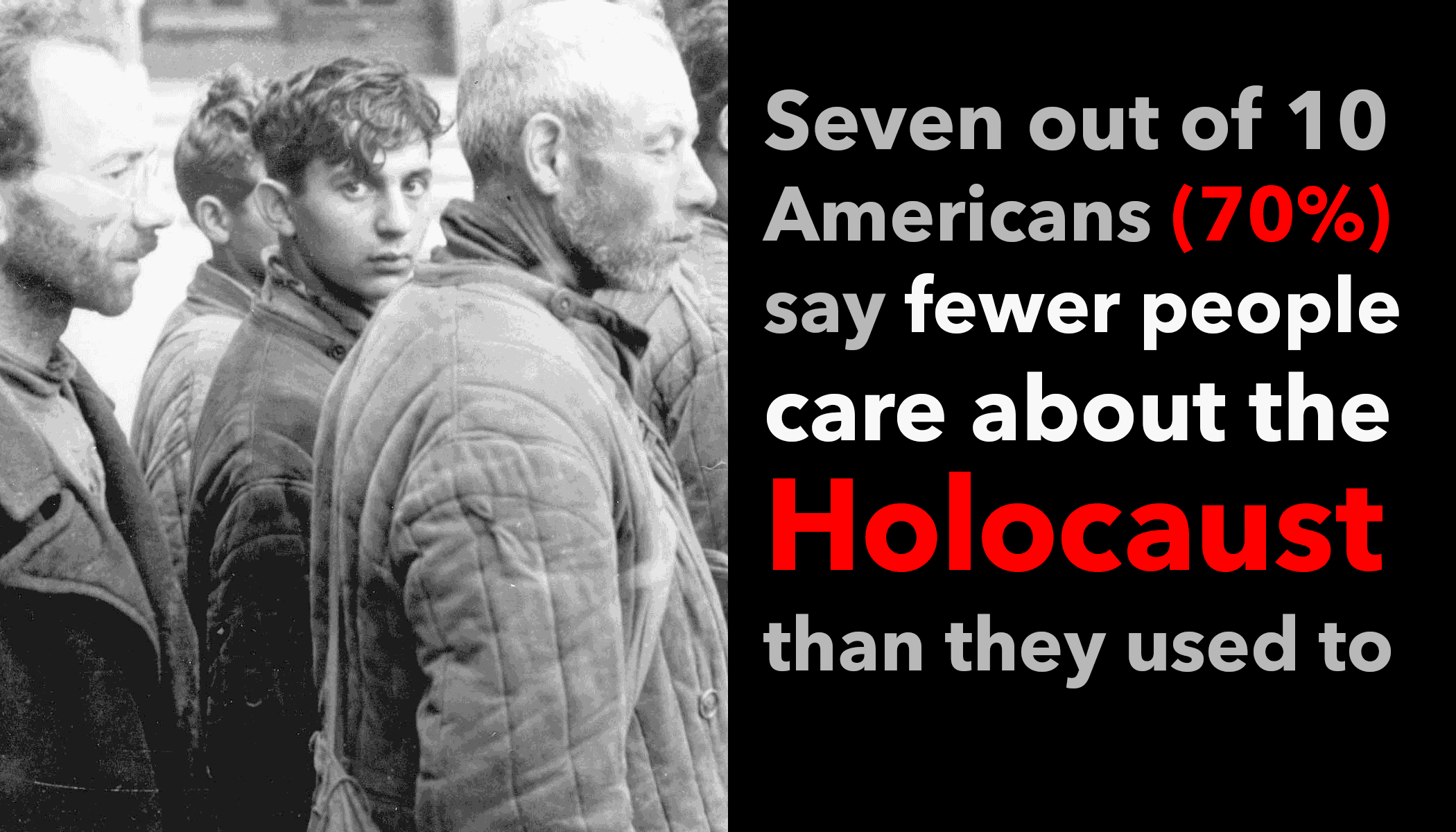
Claims Conference Survey Finds a Significant Lack of Holocaust Knowledge in the United States.
Majority of Americans Polled Believe Something Like the Holocaust Could Happen Again
The Claims Conference has conducted seven surveys across six countries examining Holocaust knowledge and awareness worldwide
Julius Berman, President of the Conference on Jewish Material Claims Against Germany (Claims Conference), announces the release of a comprehensive national survey of Holocaust awareness and knowledge among adults in the United States on the occasion of Yom HaShoah (Holocaust Remembrance Day).
The survey found there are critical gaps both in awareness of basic facts as well as detailed knowledge of the Holocaust, and there is a broad-based consensus that schools must be responsible for providing comprehensive Holocaust education. In addition, a significant majority of American adults believe that fewer people care about the Holocaust today than they used to, and more than half of Americans believe that the Holocaust could happen again.
Pictured: Hungarian Jews on the selection ramp at Auschwitz. Those who were not deemed “fit for work” were immediately sent to the gas chambers. Photo: Yad Vashem, from the Auschwitz Album
Major findings of the survey include:
-
Seven out of ten Americans (70 percent) say fewer people seem to care about the Holocaust than they used to
-
A majority of Americans (58 percent) believe something like the Holocaust could happen again
A task force led by Claims Conference Board member Matthew Bronfman was comprised of Holocaust survivors as well as representatives from museums, educational institutions, and leading nonprofits in the field of Holocaust education such as: Yad Vashem, the United States Holocaust Memorial Museum, Claims Conference, the Jewish Agency and George Washington University.
Bronfman states, “the study found significant gaps in knowledge of the Holocaust. We must take a look at these results and determine where and how best we can begin teaching the next generation these critical lessons which must resonate for decades to come.”
Claims Conference President Julius Berman noted, “On the occasion of Yom HaShoah, it is vital to open a dialogue on the state of Holocaust awareness so that the lessons learned inform the next generation. We are alarmed that today’s generation lacks some of the basic knowledge about these atrocities.”
The study also found significant gaps in knowledge about the Holocaust:
- Nearly one-third of all Americans (31 percent) and more than 4-in-10 Millennials (41 percent) believe that substantially less than 6 million Jews were killed (two million or fewer) during the Holocaust
- While there were over 40,000 concentration camps and ghettos in Europe during the Holocaust, almost half of Americans (45 percent) cannot name a single one – and this percentage is even higher amongst Millennials
At the same time, there are encouraging notes in the survey. In particular, there are key findings underscoring the desire for Holocaust education.
- More than nine out of ten respondents (93 percent) believe all students should learn about the Holocaust in school
- Eight out of ten respondents (80 percent) say it is important to keep teaching about the Holocaust so it does not happen again
Still, findings show a substantial lack of personal experience with the Holocaust:
- Most Americans (80 percent) have not visited a Holocaust museum
“This study underscores the importance of Holocaust education in our schools,” said Greg Schneider, Executive Vice President of the Claims Conference. “There remain troubling gaps in Holocaust awareness while survivors are still with us; imagine when there are no longer survivors here to tell their stories. We must be committed to ensuring the horrors of the Holocaust and the memory of those who suffered so greatly are remembered, told and taught by future generations.”
The Holocaust Knowledge and Awareness Study was commissioned by the Conference on Jewish Material Claims Against Germany. Data was collected and analyzed by Schoen Consulting with a representative sample of 1350 American adults via landline, cell-phone, and online interviews. Respondents were selected at random and constituted a demographically representative sample of the adult population in the United States.
Holocaust Knowledge and Awareness Study – Topline Results
Holocaust Knowledge and Awareness Study – Methodology

